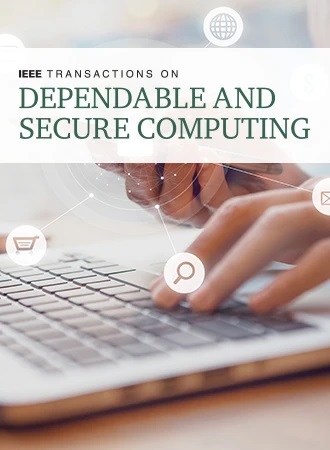Heterogeneous Differential-Private Federated Learning: Trading Privacy for Utility Truthfully
IF 7
2区 计算机科学
Q1 COMPUTER SCIENCE, HARDWARE & ARCHITECTURE
IEEE Transactions on Dependable and Secure Computing
Pub Date : 2023-11-01
DOI:10.1109/tdsc.2023.3241057
引用次数: 0
Abstract
Differential-private federated learning (DP-FL) has emerged to prevent privacy leakage when disclosing encoded sensitive information in model parameters. However, the existing DP-FL frameworks usually preserve privacy homogeneously across clients, while ignoring the different privacy attitudes and expectations. Meanwhile, DP-FL is hard to guarantee that uncontrollable clients (i.e., stragglers) have truthfully added the expected DP noise. To tackle these challenges, we propose a heterogeneous differential-private federated learning framework, named HDP-FL, which captures the variation of privacy attitudes with truthful incentives. First, we investigate the impact of the HDP noise on the theoretical convergence of FL, showing a tradeoff between privacy loss and learning performance. Then, based on the privacy-utility tradeoff, we design a contract-based incentive mechanism, which encourages clients to truthfully reveal private attitudes and contribute to learning as desired. In particular, clients are classified into different privacy preference types and the optimal privacy-price contracts in the discrete-privacy-type model and continuous-privacy-type model are derived. Our extensive experiments with real datasets demonstrate that HDP-FL can maintain satisfactory learning performance while considering different privacy attitudes, which also validate the truthfulness, individual rationality, and effectiveness of our incentives.异质差分-私有联合学习:以隐私交换效用真实
本文章由计算机程序翻译,如有差异,请以英文原文为准。
求助全文
约1分钟内获得全文
求助全文
来源期刊

IEEE Transactions on Dependable and Secure Computing
工程技术-计算机:软件工程
CiteScore
11.20
自引率
5.50%
发文量
354
审稿时长
9 months
期刊介绍:
The "IEEE Transactions on Dependable and Secure Computing (TDSC)" is a prestigious journal that publishes high-quality, peer-reviewed research in the field of computer science, specifically targeting the development of dependable and secure computing systems and networks. This journal is dedicated to exploring the fundamental principles, methodologies, and mechanisms that enable the design, modeling, and evaluation of systems that meet the required levels of reliability, security, and performance.
The scope of TDSC includes research on measurement, modeling, and simulation techniques that contribute to the understanding and improvement of system performance under various constraints. It also covers the foundations necessary for the joint evaluation, verification, and design of systems that balance performance, security, and dependability.
By publishing archival research results, TDSC aims to provide a valuable resource for researchers, engineers, and practitioners working in the areas of cybersecurity, fault tolerance, and system reliability. The journal's focus on cutting-edge research ensures that it remains at the forefront of advancements in the field, promoting the development of technologies that are critical for the functioning of modern, complex systems.
 求助内容:
求助内容: 应助结果提醒方式:
应助结果提醒方式:


